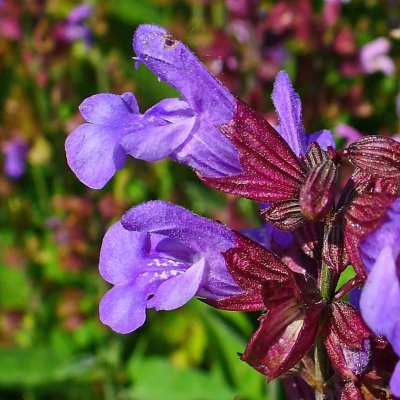Sage, whose Latin name is 'Salvia Officinalis', is from the family of honeybabagiller. Its homeland is the Mediterranean and Aegean. It grows widely in natural conditions in almost every region of our country. It is also known as 'Bitter Apple Grass' and 'Dishotu' in some regions. It is a perennial shrub-like plant with purple, blue, pink, or lilac-colored flowers, famous for the aromatic scent of its grayish-green leaves.
With a mild and sweet flavor, sage is more than just a family of herbs. It adds a different flavor to the dishes with its unique aroma and smell. It enriches the sauce of almost any meat dish. It also freely exhibits its taste in all kinds of soups, omelets, and potato dishes. With sage, it is possible to create different tastes, prepare wonderful sauces, and add great flavor to salads. For centuries, it has established a throne in the hearts of various peoples and cultures as a 'Holy Plant'.
Hippocrates, considered the father of medicine, said, "I cannot understand how someone who had sage planted in his garden died." Sage symbolizes luck. In the Middle Ages, it was believed that the presence of sage in homes and gardens brought luck. At that time, it became a ritual for newlyweds and those who had babies to burn sage incense in their homes.
From the sage plant; Sage tea, sage oil, sage tincture, sage extract, sage paste, sage soap, sage shampoo, sage liquor, and incense are produced.
[1] Herbal Treatment in Turkey_Prof.Dr.Turhan Baytop_(s142)
